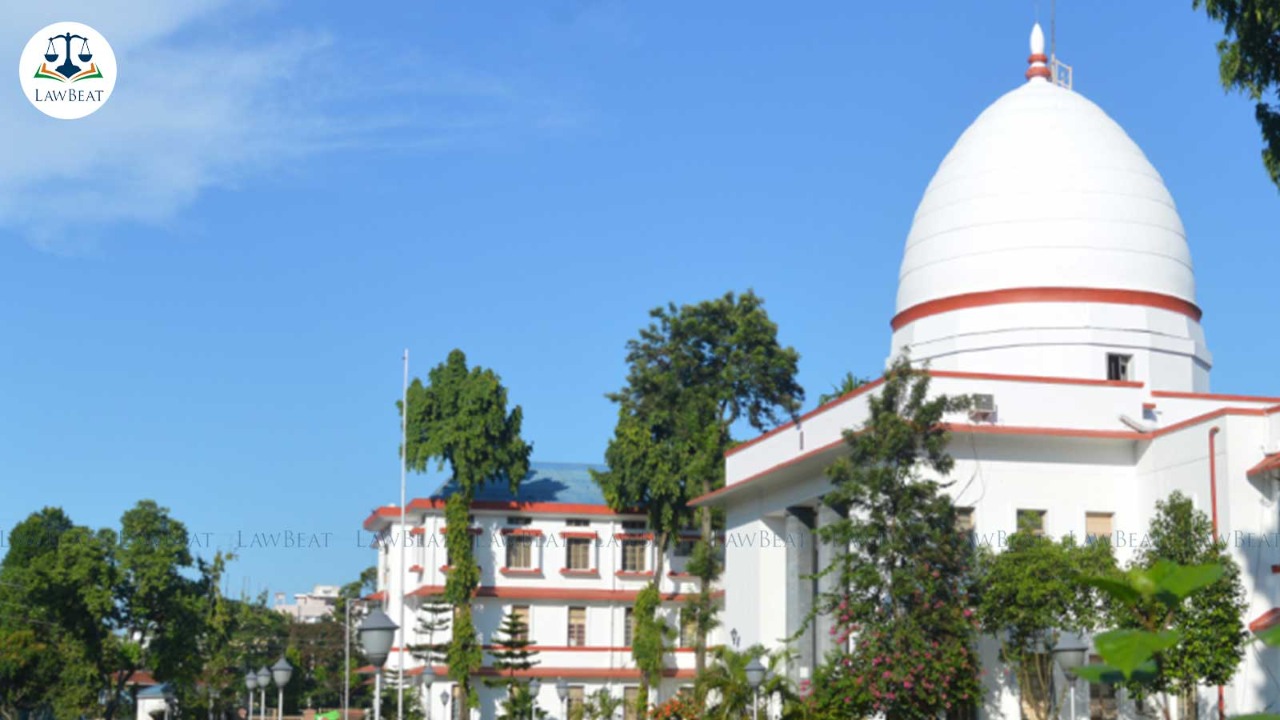Gauhati High Court orders Police to Pay Rs 5 Lakh compensation to Advocate for Handcuffing without 'Just Cause'

Court, citing the ruling in the case of Sunil Batra v. Delhi Administration (1978), emphasized that handcuffs, especially bar fetters, should be avoided as they violate human dignity
The Gauhati High Court has recently directed the police to pay a compensation of Rs. 5 Lakhs to an advocate for unjustifiable handcuffing.
The bench of Justice Devashis Baruah passed the order in the advocate's petition filed challenging the Assam Human Rights Commission's order whereby his complaint for violation of his basic human rights under Article 21 of the Constitution had been closed primarily on the ground that the charged officer had expired.
The petitioner, a law graduate, faced allegations from a Home Guard of the Assam Police, that the petitioner had assaulted him for not allowing the parking of a car near his house. A case was also registered against the petitioner involving charges under Sections 294/325/341/353 of the Indian Penal Code.
Notably, the petitioner had also filed a complaint against the said Home Guard under Sections 294/323/392/511 of the Indian Penal Code on the ground that the said Home Guard had verbally and physically abused him and tried to snatch his bag which contained Rs.10,000.
After the FIR was lodged by the said Home Guard, a police personnel called the petitioner to the police station where he was detained, and later on, he was informed that he had been arrested. On the following day, he was produced before the Chief Judicial Magistrate (CJM) who sent him to judicial custody.
The petitioner alleged that in violation of all mandates of law and dehors the guidelines issued by the Supreme Court, he was handcuffed in the police station and was taken to the hospital for his medical checkup in handcuffs. Further, when he was produced before the CJM, he was again handcuffed and on his way back, he had been continuously handcuffed as well.
The Commissioner of Police filed an affidavit-in-opposition in the present plea stating that after the completion of the investigation, the petitioner was charge sheeted, arrested and thereafter necessary steps were taken 'as per law'.
On the allegation that the petitioner was handcuffed and forwarded to the court under handcuffed condition, it was mentioned by the Commissioner of Police that the same could not be ascertained as the Investigating Officer of the matter had already died.
The affidavit also mentioned that the petitioner did not approach any higher police authority about his grievance regarding the putting of handcuffs immediately after his release by the court, instead, he approached the Commission.
The high court noted that in his deposition, the Investigating Officer had stated that the petitioner had surrendered at the Police Station, and in his cross-examination, the Investigating Officer had categorically admitted that he had handcuffed him.
The court adjudicated upon the matter by categorizing it into two key issues:
1. The appropriateness of handcuffing the petitioner upon arrest and the circumstances under which it could be justified.
2. Whether the petitioner was entitled to compensation for any violation by the arresting officer, and if so, the appropriate amount.
Court, citing the precedent in the case of Sunil Batra v. Delhi Administration (1978), emphasized that handcuffs, especially bar fetters, should be avoided as they violate human dignity. The court stressed that if handcuffing is deemed necessary, the escorting authority must contemporaneously record the reasons and seek the presiding judge's approval.
The court found that the respondent authorities, particularly the Investigating Officer, had violated the petitioner's rights under Article 21 of the Constitution. Referring to the case of Nilabati Behera alias Lalita Behera v. State of Orissa and Others (1993), it highlighted that a claim for compensation in public law, based on strict liability, is a distinct remedy for contravention of human rights and fundamental freedoms guaranteed by the Constitution.
Considering the petitioner's status as an advocate, court concluded that the handcuffing, without just cause, not only infringed upon his human rights but also undermined his dignity and professional standing. As a result, the bench directed the respondent authorities to pay a compensation of Rs. 5,00,000 to the petitioner within a period of 2 months.
Case Title: Sabah Al Zarid v. The State of Assam and others
